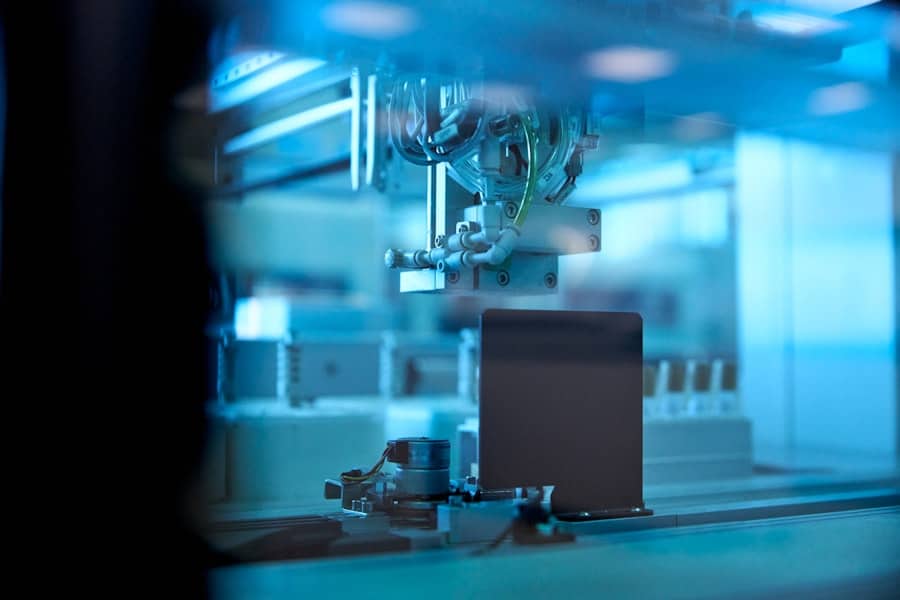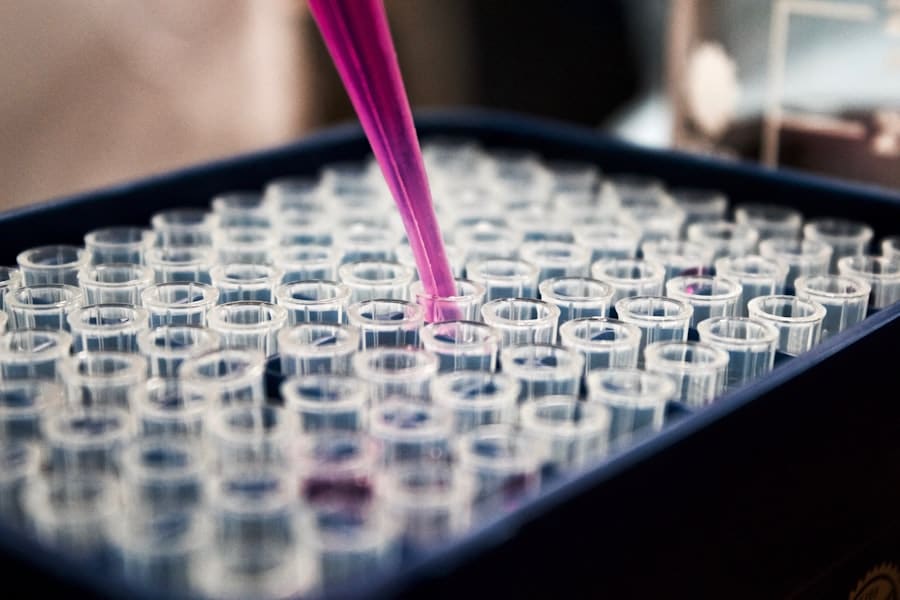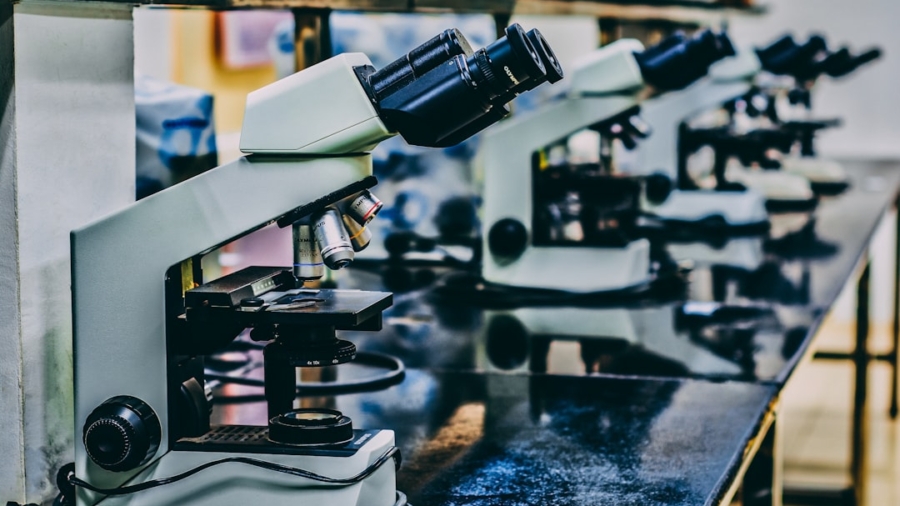The integration of artificial intelligence (AI) into drug discovery represents a transformative shift in the pharmaceutical landscape. Traditionally, drug discovery has been a labor-intensive and time-consuming process, often taking over a decade and costing billions of dollars to bring a new drug to market. The advent of AI technologies has introduced new methodologies that can streamline various stages of this process, from initial target identification to clinical trials.
By leveraging vast datasets and advanced algorithms, AI can uncover patterns and insights that may not be readily apparent to human researchers, thereby enhancing the efficiency and effectiveness of drug development. AI’s application in drug discovery is multifaceted, encompassing machine learning, natural language processing, and predictive analytics. These technologies enable researchers to analyze complex biological data, predict molecular interactions, and simulate biological processes with unprecedented speed and accuracy.
As a result, pharmaceutical companies are increasingly adopting AI-driven approaches to not only reduce costs but also to improve the success rates of drug candidates. The potential for AI to revolutionize drug discovery is immense, as it promises to accelerate the timeline for bringing new therapies to patients while also addressing some of the most pressing challenges in modern medicine.
Key Takeaways
- AI is revolutionizing drug discovery by speeding up the identification of potential drug targets and accelerating the screening and optimization of lead compounds.
- AI models can predict drug-drug interactions and adverse effects, helping to minimize risks and improve the safety profile of new drugs.
- Drug repurposing is being enhanced by AI-driven approaches, which can identify new therapeutic uses for existing drugs and expedite the development process.
- AI is also improving clinical trial design and patient selection, leading to more efficient and successful trials with better outcomes for patients.
- While AI offers many benefits in drug discovery, there are still challenges and limitations that need to be addressed, such as data quality and interpretability of AI models.
The Role of AI in Identifying Drug Targets
AI: A Game-Changer in Drug Target Identification
AI has emerged as a powerful tool in this domain, enabling researchers to sift through vast amounts of genomic, proteomic, and metabolomic data to identify potential targets more efficiently.
Uncovering Novel Targets with Machine Learning
Machine learning algorithms can analyze patterns in biological data that correlate with disease states, allowing for the identification of novel targets that may have been overlooked using conventional methods. For instance, researchers have utilized AI to analyze gene expression data from cancer patients, identifying specific mutations that drive tumor growth. By employing deep learning techniques, they can predict which genes are likely to be effective targets for therapeutic intervention.
Real-World Success Stories
A notable example is the use of AI by companies like BenevolentAI, which has successfully identified new targets for diseases such as amyotrophic lateral sclerosis (ALS) by analyzing existing biomedical literature and databases. This approach not only accelerates the target identification phase but also enhances the likelihood of selecting targets that are biologically relevant and actionable.
Accelerating Drug Screening and Lead Optimization with AI

Once potential drug targets have been identified, the next phase involves screening compounds to find those that interact effectively with the target. This process can be laborious and resource-intensive; however, AI has significantly accelerated drug screening through high-throughput virtual screening techniques. By employing machine learning models trained on existing chemical libraries and biological activity data, researchers can predict which compounds are most likely to yield positive results in laboratory tests.
For example, Atomwise has developed an AI platform that uses deep learning algorithms to predict the binding affinity of small molecules to specific protein targets. This technology allows researchers to screen millions of compounds in silico before conducting physical experiments, drastically reducing the time and cost associated with lead optimization. Furthermore, AI can assist in optimizing lead compounds by predicting their pharmacokinetic properties and potential toxicity profiles early in the development process.
This predictive capability enables researchers to focus on the most promising candidates, thereby increasing the efficiency of the drug development pipeline.
Predicting Drug-Drug Interactions and Adverse Effects Using AI Models
One of the significant challenges in drug development is understanding how new drugs will interact with existing medications and predicting potential adverse effects. Adverse drug reactions (ADRs) can lead to severe consequences for patients and costly delays for pharmaceutical companies. AI models have shown great promise in predicting drug-drug interactions (DDIs) by analyzing large datasets that include information on known interactions, chemical structures, and biological pathways.
By employing machine learning algorithms, researchers can develop predictive models that assess the likelihood of interactions between drugs based on their chemical properties and mechanisms of action. For instance, IBM Watson has been utilized to analyze patient records and clinical trial data to identify potential DDIs that may not have been previously documented. This capability not only enhances patient safety but also informs regulatory decisions during the approval process.
Moreover, AI can help identify biomarkers associated with ADRs, allowing for more personalized medicine approaches where treatment regimens are tailored based on individual patient profiles.
AI-Driven Approaches to Drug Repurposing
Drug repurposing, or repositioning existing drugs for new therapeutic indications, is an efficient strategy that can significantly reduce development timelines and costs. AI plays a pivotal role in this area by analyzing existing data on approved drugs and their mechanisms of action to identify new potential uses. By leveraging machine learning algorithms that can recognize patterns across diverse datasets, researchers can uncover novel therapeutic applications for existing compounds.
A prominent example of AI-driven drug repurposing is the work done by Insilico Medicine, which utilized deep learning techniques to analyze vast amounts of biomedical literature and databases. This approach led to the identification of a candidate for treating fibrosis that was previously approved for another indication. The ability to repurpose drugs not only accelerates the development process but also mitigates some risks associated with traditional drug discovery since these compounds have already undergone extensive safety evaluations.
Enhancing Clinical Trial Design and Patient Selection with AI

Clinical trials are essential for validating the safety and efficacy of new drugs; however, they often face challenges related to patient recruitment and trial design. AI can enhance these processes by analyzing patient data to identify suitable candidates for trials based on specific inclusion criteria. Machine learning algorithms can sift through electronic health records (EHRs) and genomic data to match patients with trials that are most likely to benefit them.
For instance, companies like Tempus are utilizing AI-driven platforms to analyze clinical and molecular data from cancer patients, enabling oncologists to identify appropriate clinical trials based on individual patient profiles. This targeted approach not only improves recruitment rates but also enhances the likelihood of trial success by ensuring that participants are more likely to respond positively to the treatment being tested.
Overcoming Challenges and Limitations of AI in Drug Discovery
Despite its transformative potential, the integration of AI into drug discovery is not without challenges. One significant limitation is the quality and availability of data. Many machine learning models rely on large datasets for training; however, data in biomedical research can be sparse or biased due to various factors such as incomplete records or underrepresentation of certain populations.
This lack of comprehensive data can hinder the accuracy and generalizability of AI models. Moreover, there are concerns regarding the interpretability of AI algorithms. While these models can provide predictions with high accuracy, understanding the rationale behind their decisions remains a challenge.
This lack of transparency can pose regulatory hurdles as well as ethical dilemmas when it comes to clinical applications. Addressing these challenges requires ongoing collaboration between data scientists, biologists, clinicians, and regulatory bodies to ensure that AI-driven approaches are both effective and ethically sound.
Future Outlook: Integrating AI into the Drug Development Process
The future of drug discovery is poised for significant advancements through the continued integration of AI technologies into every stage of the development process. As computational power increases and more comprehensive datasets become available, AI models will become increasingly sophisticated in their ability to predict outcomes and guide decision-making. The convergence of AI with other emerging technologies such as genomics, proteomics, and personalized medicine will further enhance its impact on drug discovery.
Pharmaceutical companies are likely to invest heavily in building interdisciplinary teams that combine expertise in biology, chemistry, data science, and regulatory affairs to fully leverage AI’s capabilities. Additionally, regulatory agencies are beginning to adapt their frameworks to accommodate AI-driven methodologies, paving the way for more rapid approvals of innovative therapies. As these trends continue to evolve, we can expect a future where AI not only accelerates drug discovery but also leads to more effective treatments tailored to individual patient needs, ultimately transforming healthcare as we know it.
A related article to “How AI Models Are Accelerating Drug Discovery Pipelines” can be found in The Next Web, which brings insights to the world of technology. This article may provide further information on how technology, such as AI models, is revolutionizing various industries, including healthcare and pharmaceuticals.
FAQs
What is drug discovery?
Drug discovery is the process of identifying new medications or compounds that can be used as treatments for various diseases and medical conditions.
How are AI models being used in drug discovery?
AI models are being used in drug discovery to analyze large datasets, predict molecular properties, identify potential drug candidates, and optimize drug design.
What are the benefits of using AI models in drug discovery pipelines?
Using AI models in drug discovery can accelerate the process of identifying potential drug candidates, reduce the time and cost of bringing new drugs to market, and improve the success rate of drug development.
What are some examples of AI models being used in drug discovery?
Examples of AI models being used in drug discovery include machine learning algorithms for predicting drug-target interactions, deep learning models for analyzing molecular structures, and natural language processing for mining scientific literature.
What are the challenges of using AI models in drug discovery?
Challenges of using AI models in drug discovery include the need for high-quality data, the interpretability of AI-generated results, and the integration of AI tools into existing drug discovery pipelines.
How are AI models impacting the future of drug discovery?
AI models are expected to revolutionize the future of drug discovery by enabling the rapid identification of novel drug candidates, personalized medicine approaches, and the development of treatments for previously untreatable diseases.

